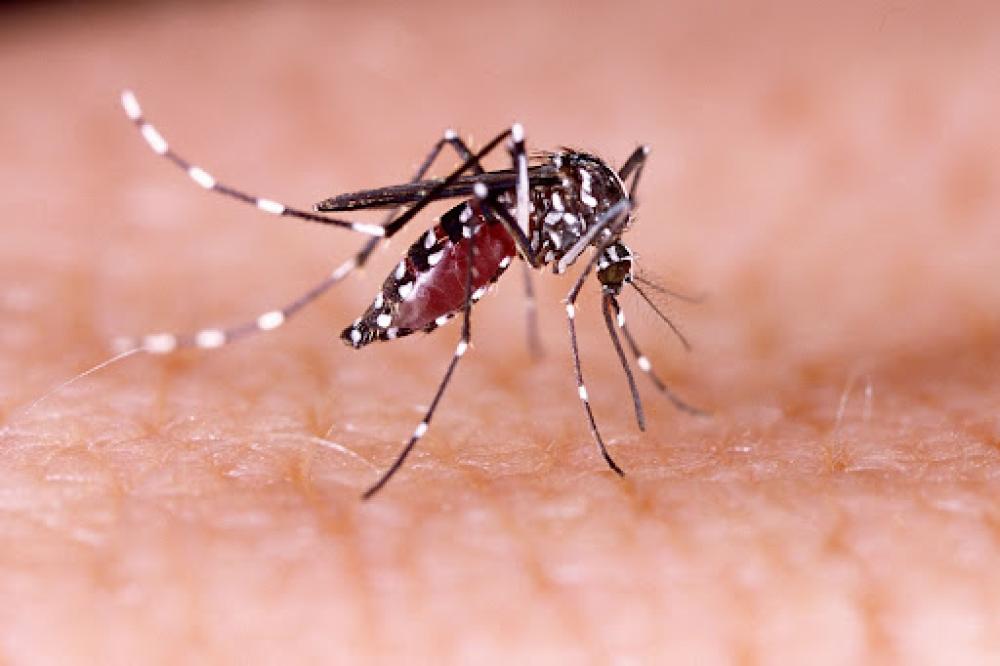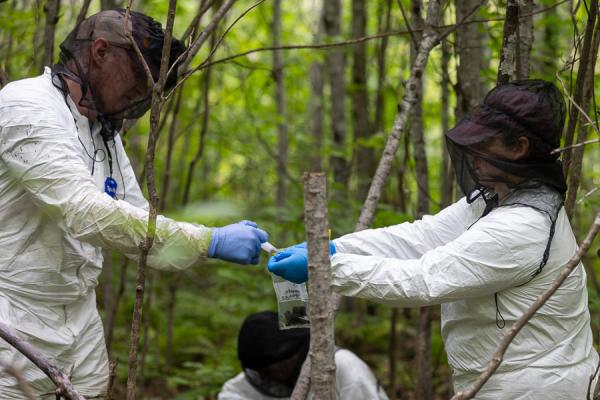Scientists are using bacteria to prevent mosquito-borne disease. Is it sustainable?
October 17, 2023

A naturally occurring bacteria could prevent the spread of mosquito-borne illnesses. New research from CVM takes steps towards unraveling the mystery behind why this is, and whether artificially introducing the bacteria to mosquitoes could prompt resistance.
“Stopping mosquito-borne diseases is more important than ever because global re-emergence of mosquito-borne infectious diseases has accelerated to the point that the vast majority of the global population is at risk,” said Matthew Aliota, an associate professor in the Department of Veterinary and Biomedical Sciences at CVM. “This is only likely to get worse as climate change expands the range of certain mosquito species.”
Wolbachia bacteria infects as much as 60 percent of the world’s insects. Scientists have long known that different Wolbachia strains can interfere with various parts of mosquito biology, hindering viruses’ ability to replicate in the insects and spread to humans.
Knowing this, teams of scientists from around the world are introducing the bacteria to Aedes aegypti mosquitoes—which are not naturally infected with it in the wild—in an effort to dramatically reduce the species susceptibility to infection with zoonotic viruses including the dengue, yellow fever, chikungunya, and Zika viruses.
But it’s not yet clear exactly how the bacteria does this. The process is likely extremely complex and different for every virus. The approach has been best studied in preventing the spread of dengue virus. Because Aedes aegypti mosquitoes transmit multiple viruses they can transfer to humans, the strategy could likely be used to prevent multiple mosquito-borne diseases. The CVM team is zeroing-in on Zika.
Zika virus emerged as a public health threat in 2015, when the virus started circulating around Latin America, and then in the United States the following year. Zika virus is largely transmitted by Aedes aegypti mosquitoes, but can also be exchanged through contact with the bodily fluids of someone who is infected. Another recent UMN study by Aliota found that exposure to the virus via other humans may enable Zika virus to mutate in unexpected ways. .
The logic behind establishing Wolbachia bacteria in mosquitoes and then releasing them into areas where Zika virus spread is that if the mosquitoes can’t harbor the virus in the first place, the insects cannot transmit the virus to humans. But the system isn’t perfect. Aliota is examining how the process could be thwarted.
“The crux is that we don’t know how it works against each individual virus or if there is the possibility for resistance developing,” said Aliota. “We know it works but we don’t know exactly how it works.”
He and a team of UMN researchers studied mosquitoes born from eggs provided by the World Mosquito Program in Colombia. Their goal was to better understand the way Wolbachia bacteria works specifically to block Zika from infecting mosquitoes, and whether the approach could put pressure on the virus to develop resistance to the bacteria, potentially creating new strains of the virus.
To do this, they evaluated how mosquitoes respond to the presence of Wolbachia bacteria and to Zika virus by sequencing thousands of mosquito genes at once to create a global picture of these interactions. They discovered that the interaction likely involves many different immunological and physiological processes that function as part of a larger network that limits virus replication in the mosquito. They also sequenced Zika virus genomes to understand how the virus might evolve in the face of Wolbachia.
The findings were promising. They found that it would likely be difficult for Zika virus to evolve to develop Wolbachia resistance, meaning the approach is likely low-risk when it comes to putting pressure on Zika virus to evolve.
Understanding what factors could make mosquitoes resistant to the effects of Wolbachia bacteria is a crucial step in making modified mosquito programs successful.
“Wolbachia-based biocontrol is being implemented in the real world,” Aliota said. “We wanted to understand how sustainable this approach might be.”
Read the full study in PLOS Neglected Tropical Diseases.


